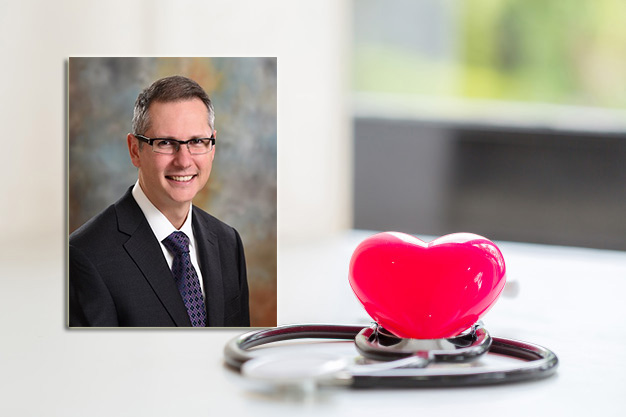
We’ve changed habits and actions to protect our health during the pandemic, but one thing still remains the same – we need to take quick action with a possible heart attack or stroke. Life-threatening blockages and arrhythmias need timely detection and treatment to support the best possible outcome. Waiting to get help can increase the damage to heart muscle or brain tissue.
East Georgia Regional Medical Center has deep resources ready to support diagnosis and intervention in the event of heart attack or stroke.
As an Accredited Chest Pain Center by the American College of Cardiology and with Certification as a Primary Stroke Center by The Joint Commission and the American Heart and Stroke Associations, East Georgia Regional Medical Center has cardiology specialists on medical staff and offers a cardiac catheterization lab, cardiovascular diagnosis and imaging, interventional cardiology, and vascular medicine services.
“Heart care specialists are ready to assist, and the sooner we can see a patient to assess their condition and intervene, the better,” said Interventional Cardiologist Dr. Julio Schwarz of Statesboro Cardiology. “In view of the pandemic, the hospital has great resources to assist patients and has taken essential steps to enhance safety. Timely action and COVID-19 safety are a priority for us at all times.”
Concern for safety during the pandemic has kept many people from seeking medical help and that can get in the way of timely treatment in an emergency. East Georgia Regional Medical Center is actively working to maintain a safe place patients can get medical help whether for a medical emergency or routine care.
The hospital’s precautions include enhanced practices for infection prevention, restricted access to the facility, and furniture arrangement to support social distancing and patient flow. Caregivers practice infection prevention including wearing personal protective equipment and washing hands before and after caring for each patient. Care for any COVID-19 positive patients is in a separate, designated unit.
Dr. Schwarz continued, “It is crucial that members of our community feel comfortable getting the care they need, and put their health first and foremost. To support the best possible outcome, we encourage our patients to always seek immediate emergency medical care for serious conditions such as heart attack or stroke.”
Calling 9-1-1 for an ambulance is the best action rather than trying to drive to the hospital yourself when you or someone you are with experiences heart attack or stroke symptoms. EMS crews are trained to care for patients experiencing heart attack and stroke, so you’ll get medical care sooner.
Signs of a possible heart attack can include chest pain or discomfort, shortness of breath, and/or pain or discomfort in the jaw, neck, back, arm or shoulder. Women also may feel nauseous, light-headed or unusually tired.
Symptoms of a stroke can be remembered with the acronym F-A-S-T:
- Face drooping – Does one side of the face droop or is it numb?
- Arm weakness – Is one arm weak or numb?
- Speech difficulty – Is speech slurred, are they unable to speak, or are they hard to understand?
- Time to call 9-1-1 – If the person shows any of these symptoms, even if the symptoms go away, call 9-1-1 and get them to the hospital immediately.
If you need more information on your personal risk factors for heart disease, schedule an appointment with your primary care doctor. If you need to establish a primary care provider, visit EastGeorgiaMedSurgAssociates.com, and easily schedule an appointment there.


Bulloch Public Safety
01/30/2026 Booking Report for Bulloch County

Chattooga Local News
Obituary: Mr. Jeremy Wayne Elrod

Chattooga Local News
Gov. Kemp Declares New State of Emergency Ahead of Winter Storm

Chattooga Local Government
Majority Leader Jason Anavitarte Applauds Committee Passage of Priority Legislation, Senate Bill 382

Bulloch Public Safety
01/20/2026 Booking Report for Bulloch County

Bulloch Public Safety
01/12/2026 Booking Report for Bulloch County

Bulloch Public Safety
01/09/2026 Booking Report for Bulloch County

Bulloch Public Safety
01/05/2026 Booking Report for Bulloch County

Bulloch Public Safety
01/26/2026 Booking Report for Bulloch County





